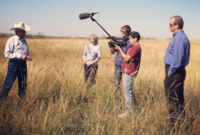Lesson learned: take the bull by the horns
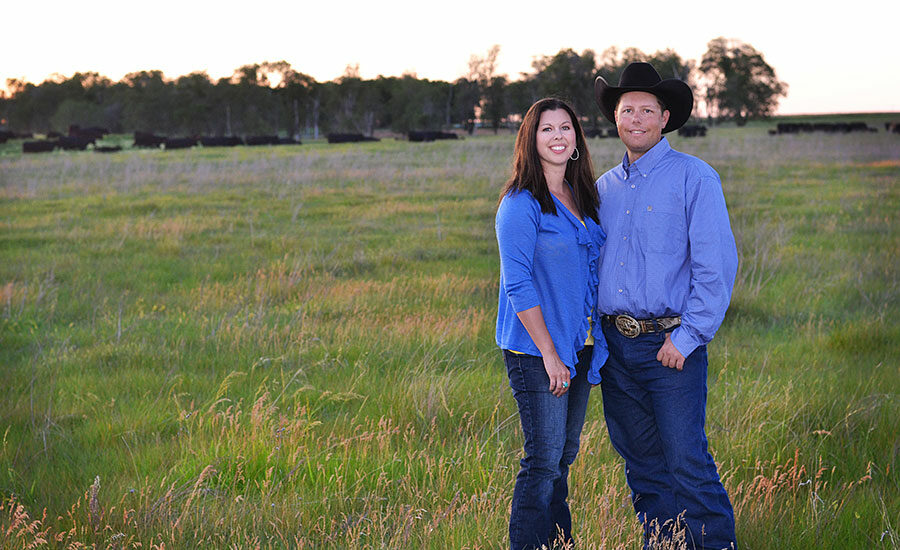
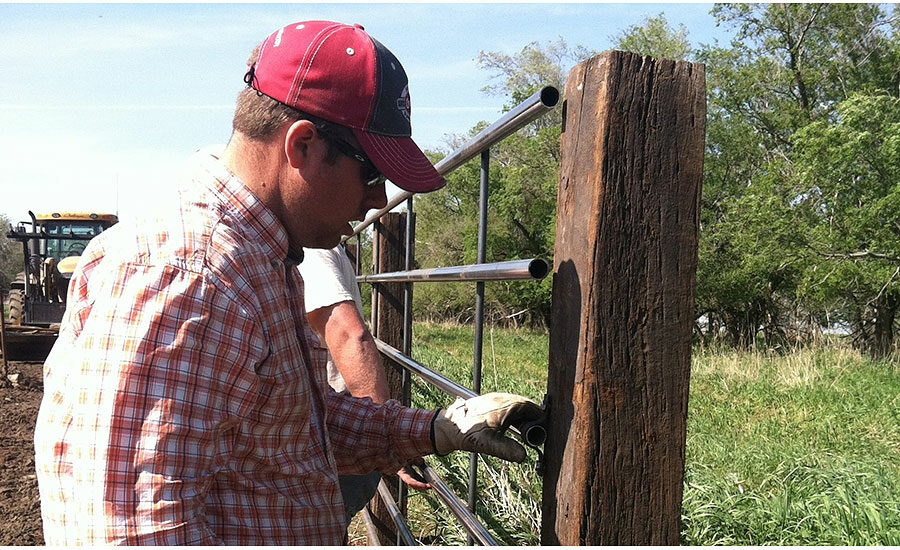
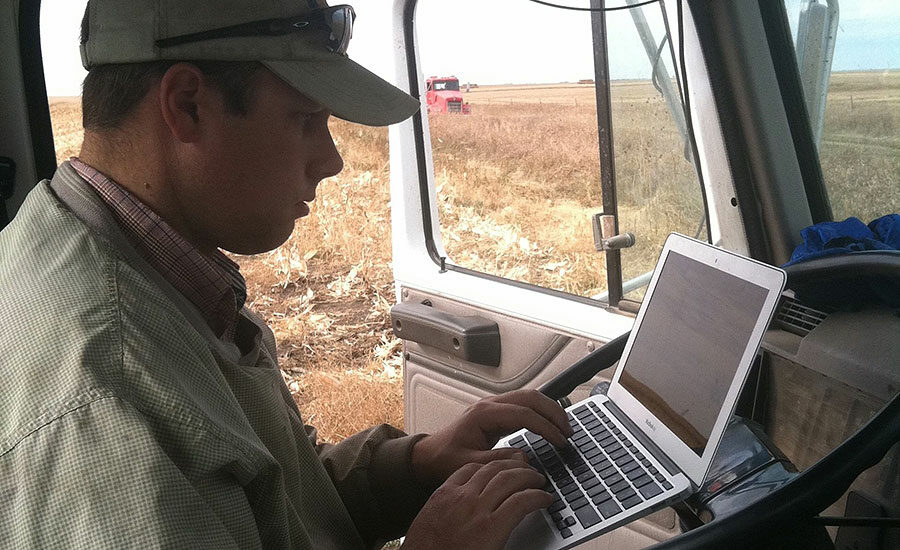
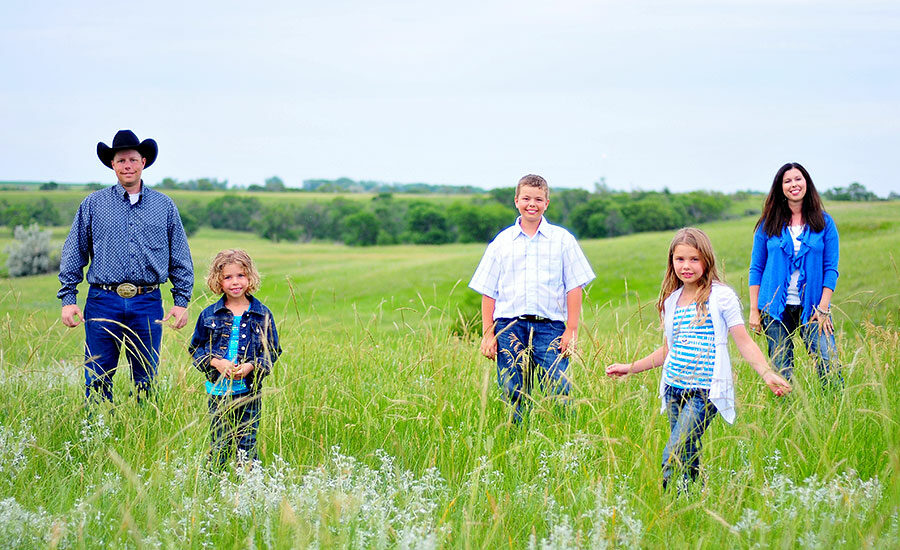




Stacy and Troy Hadrick truly practice what they preach. This fifth-generation South Dakota ranching couple is helping to make the voice of agriculture louder and more influential by putting a face to the people who put food on our plates.
They simply tell their stories to anyone who will listen. They learned early if you do not tell your story, someone else will. After New York Times reporter Michael Pollan misled the Hadricks and the public about the beef-production process at the Hadricks’ ranch in a scathing story in 2002, the Hadricks learned letting someone else speak for you can have dire consequences.
In the wake of that experience, they took the bull by the horns and became advocates for agriculture, telling people their story and encouraging others to do the same. Here’s their story about what pushed them to raise their voices about their passion and livelihood, and what they are doing to put a face to agriculture.
Strassburger: What inspired you to start telling your story and create Advocates for Agriculture?
Troy: We thought it was a great opportunity to show people what we do instead of just talking about it. We agreed to have Mr. Pollan come out to see for himself how we raise cattle and follow that process through the entire chain. We communicated with him for six months through this whole process while he was writing. But when the article came out, we found out that he lied to us about what he was going to do. He knew what direction this article was going to take before he even went to the ranch; he just needed faces and stories to punch into place. We got to read the story the same day as everyone else — on the front page of the New York Times Magazine.
Strassburger: Instead of letting this story stay one-sided, you decided to take a difficult situation and turn it into a learning experience. It became the jumping-off point to become advocates for agriculture, correct?
Troy: We hunkered down and thought, “It’s just a newspaper article; it’ll blow over.” But it didn’t. Two, three, four years later, it was still coming up. There was a rallying voice around the article about how we need to change everything, change agriculture. Four years after the article came out, we decided that we needed to go out and tell the other side of the story. We knew it all along but didn’t know how. We just started to tell anyone who would listen: Here’s the real story about agriculture in this country.
Stacy: We were accused of preaching to the choir, but that was essentially our goal. That is what we are excited about. The choir is singing. There are more people that are telling their story now than 10 years ago. We, as farmers and ranchers, are catching up now because we didn’t talk about what we did, we didn’t share stories like we needed to in order to connect to people.
Strassburger: Committed to staying aware of all things agriculture in the media, you knew something had to be done to counteract Yellowtail Wine’s new fundraising campaign for the the Humane Society of the United States (HSUS). The campaign was scheduled to donate $100,000 to HSUS for three consecutive years. How did your advocacy for agriculture, however, make a difference in getting this campaign cancelled?
Troy: It was a crazy idea in my mind because we have a company in Australia that relies on farmers there to provide grapes for their product, and yet, half a world away, they were telling farmers to stop. It was an example of how we need to get the right story told.
We [reached out to Yellowtail via social media and said], “The donation you are giving to this organization is putting a determinant on my family continuing onto the sixth generation.” We encouraged others to tell their story and to share ours to let Yellowtail know how this campaign was affecting others.
Strassburger: After hundreds of comments began to roll in to your post within a few hours, you decided to go even further and tap into a different social media outlet?
Troy: I put my camera on the fencepost on our ranch and told my story and about Yellowtail’s donation program and what the Humane Society of the United States does. I took our last bottle of Yellowtail wine and dumped it on the ground. From there, at the end of the video, I said, “Thank you for supporting American farmer and rancher families.” It was just a short, one-take video — no editing, no production crew or anything involved. I put it on YouTube, another platform to tell my story. It blew up from there.
The whole experience was really amazing because we had farmers, ranchers, hunters — all walks from the agriculture community — telling their own story, not reading a script, coming together to say how this donation would affect them. Together, we changed the course of action for a multinational company, and it didn’t cost us anything and none of us had to leave home. It’s a great example of what can happen when we share stories and put a face on agriculture.
(Nearly 40,000 views later (http://bit.ly/NPYellowFailVid), thousands of comments and resulting media interviews, Yellowtail said they had made a mistake in partnering with the Humane Society. Although money that already had been donated could not be returned, funds were redirected to a more appropriate cause and the remainder of the program was cancelled.)
Strassburger: How do you think farmers and ranchers are viewed in today’s world? In other words, what is the story that is being told about them?
Troy: When people get to meet farmers and ranchers, they tend to like us. They appreciate us caring about what we do, how we raise cattle and how we farm. Instead, the people who don’t trust us don’t know us.
Stacy: It never takes long for people to break down the stereotype once they are with us. They say, “OK, so you aren’t the evil ranchers ... There must be others.” That’s the picture people have painted, but that’s not the reality. Once we start a conversation, it doesn’t take long for them to ask questions they have been misled about.
Troy: When people don’t understand what we do, they get nervous. Hormones, antibiotics and GMOs are the triple crown of the questions we get. They think there is a conspiracy to give them bad food, but the fact of the matter is that food safety is so important to us. If you are scared to eat my product, I won’t be in business for long. Plus, we are eating this ourselves. This is the same beef we are feeding our family; there is no difference. If we don’t take care of our land, nothing will work, so we have every reason in the world to make our product great and care for our land.
Strassburger: How do you envision the ideal future of agriculture and the meat business?
Troy: When we look at the future of agriculture and how we want that to shape out, we see ourselves having the freedom and the ability to continue to operate with the best management practices on our particular ranch. My generation has to continue to go out and make people understand our trade. Our kids deserve to have the opportunity to continue this tradition into the future.
I look at this cow herd not as mine, but I am instead taking care of it in the meantime. It used to be my grandparents’, my dad’s, now it’s mine and one day it will be my kids’. I take care of it in the meantime and try my best to continue passing it along.
When we look at the future, we have to continue to be aware of the fact that 9 billion people are showing up on this planet. That’s a lot of mouths to feed three times a day. At the end of the day, this is all about food and feeding people. We have great resources in this country and the world that we can take advantage of by using cattle.
From a rancher’s perspective, the future of the meat business relies on the ability to track. The genetic decisions I make this spring end up on somebody’s plate two and a half years down the road. We want to make you proud.
Strassburger: How can members of the farming and ranching community best raise their voices, tell their story and spread the truth to make this a reality?
Stacy: We help people to understand that any drop in the bucket they can and will make a difference. Take a stand. Figure out where you feel the most comfortable talking to people about what you do, whether it be through social media, within your family or your community. Speak up.
We can’t afford not to.
Looking for a reprint of this article?
From high-res PDFs to custom plaques, order your copy today!





